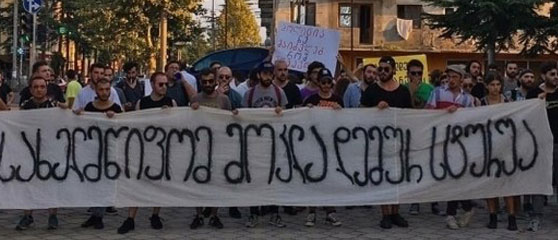These days, any invocation of the Philippine drug war instantly summons the figure of Rodrigo Duterte to mind. This is only understandable: under Duterte’s watch, “tens of thousands” have already been killed in the name of a war on drugs that has brutalised largely the lives of the poor. In February 2021, the Philippine state “finally admitted police culpability” in these killings.
The sobering reality, however, is that this punitive regime has been around for decades. In the early 1970s, the late dictator Ferdinand Marcos substantiated his declaration of martial law by declaring his own drug war, following parallel currents in Nixon’s America and capitalising on people’s preexisting notions that equated drug use to criminality. Subsequent Philippine presidents and politicians would utilise the ‘moral panic’ around drugs to forward their own agenda, culminating with President Gloria Macapagal-Arroyo’s declaration of yet another drug war at the start of the 21st century.
One enduring legacy of these drug wars is Republic Act 9165 or the Comprehensive Dangerous Drugs Act of 2002, signed into law by Macapagal-Arroyo—and which takes after R.A. 6425 or the Dangerous Drugs Act of 1972 under Marcos. In its totality, R.A. 9165 regards drugs as “today’s more serious social ills” and, consequently, treats drug-related offences as crimes deserving of severe punishment. The penalty for selling prohibited drugs, for example, is incarceration for the same period of time as that meted out to homicide. Such is the force of R.A. 9165 that it in fact serves as the blueprint for Duterte’s drug war—and the foundation for the acts of violence and culture of impunity that have thrived under the present government.
As if this draconian measure hasn’t been enough, various politicians have also pushed for more punitive legislation. In March 2021, the Philippine Congress approved a bill that would render anyone accused of being a drug importer, financier, or ‘protector’ guilty until proven innocent: a move that runs contrary to the country’s Constitution, not to mention the most basic tenets of human rights. Likewise emboldened by Duterte’s rhetoric, some state actors in recent years have also moved to reinstate the death penalty in the country—again, using drug use, drug offenders, and the guise of the drug war as justification.
What can account for this propensity of politicians to pursue ever-more-punitive measures toward people accused of drug-related offences?
One reason is that current paradigms continue to regard drugs as ‘exceptional’ evils—and therefore, as hinted at earlier, deserving of exceptional punishment. Even among sectors of society that can be regarded as so-called allies of people who use drugs—and even within the community of people who use drugs—this ‘exceptionalism’ pervades and moulds the discourse.
Taking after such ‘exceptionalism’, politicians have continually utilised drugs as populist tropes, amplifying the notion of drug use into a national crisis where ‘virtuous’ members of society must be saved from ‘evil’ drug users—and thereby justifying the bloodshed of a so-called war on drugs. In a heavily populist milieu, being “tough on drugs” somehow makes for an attractive leader. Duterte’s victory in the 2016 national elections, after all, was in part fuelled by his campaign promise to completely rid the country of drugs—and implicitly, the people who use them—within three to six months of his inauguration.
In spite of the Philippines’ increasingly authoritarian climate, civil-society groups have remained vigilant in monitoring the government’s punitive political agenda—and taking necessary, immediate action. Today, amid the threat of the above-mentioned bill becoming law, these groups have been organizing position papers and seeking representation in the Senate deliberations, hoping to block its becoming law – and to push for, as one position paper that the authors were able to read puts it, “a national drug regulatory framework that promotes justice and rule of law.” With the presence of a handful of allies in Congress, more humane, alternative bills have also been filed, including at least two that insist on a harm-reduction approach for drug interventions.
Such moves, however, are unlikely to sway prevailing public opinion on drugs and the drug war: Recent surveys, if they’re to be believed, revealed that Duterte remains wildly popular in the country, even among the poor who have borne the brunt of his policies., Bolstered by relentless rhetoric that insists on the indiscriminate death of anyone involved with drugs, the Philippines’ brutalist regime toward drugs will not end so easily—and will likely persist even after Duterte’s term expires in a year’s time.
For any meaningful and sustainable drug policy to take root and succeed in the country, it will take more than just opposing a murderous leader now; it will also require a closer, introspective look into societal attitudes—and addressing the prejudices that have festered freely for so long.
* Gideon Lasco is Senior Lecturer of Anthropology at the University of the Philippines Diliman and Fellow at the University of Hong Kong's Centre for Criminology.
* Vincen Gregory Yu is a physician and research associate at the Ateneo de Manila University's Development Studies Program.


